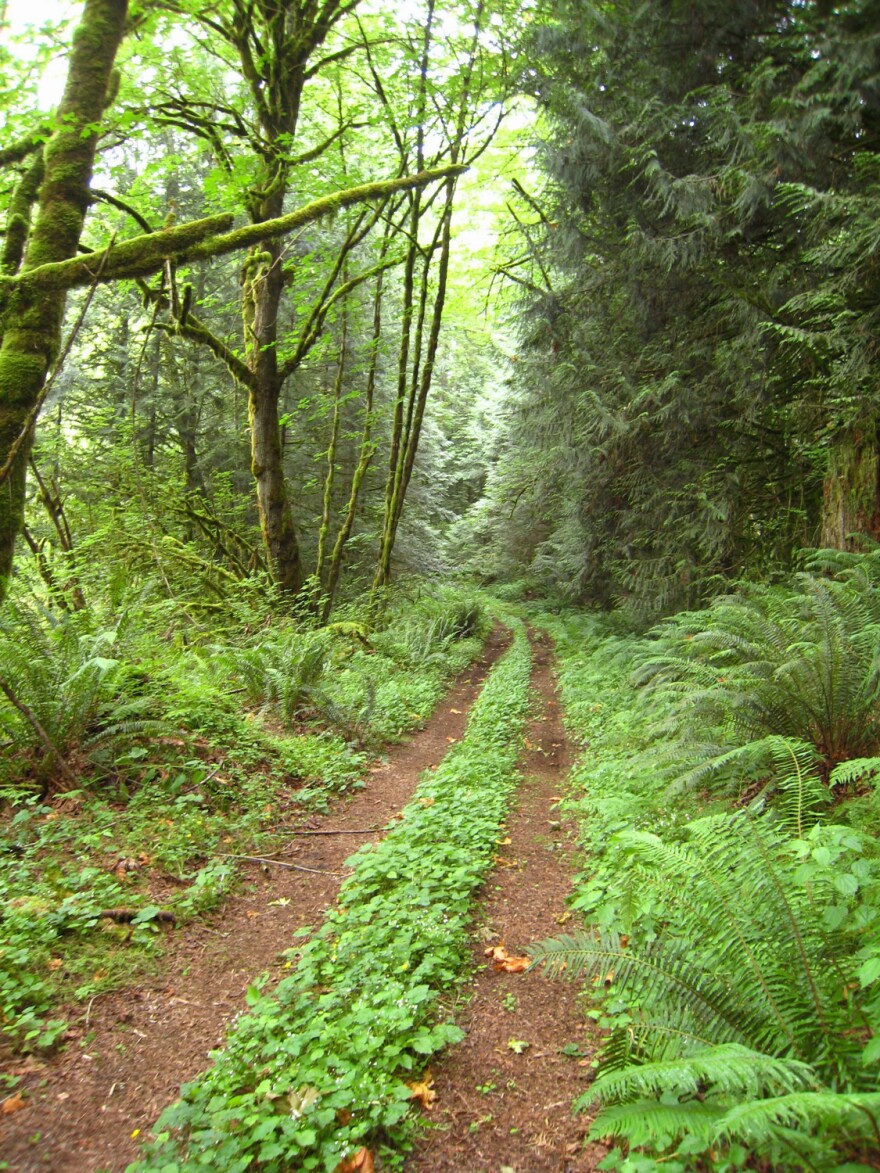Carbon credits that protect forests have been around for more than 20 years. Companies that want or need to reduce their carbon footprint can purchase offsets, and that money is invested to preserve or plant trees. Trees inhale carbon dioxide, so they help offset climate-warming pollution produced when we burn fossil fuels.
But the forests that have generally benefited from carbon credits are in rural areas and in faraway countries that offer the largest stands of trees.
ADDRESSING URBAN CANOPY LOSS
Enter City Forest Credits, a new nonprofit in Seattle that specializes in helping preserve urban canopy. It identifies and verifies projects in cities and towns where investments in trees can be counted as carbon credits.
Last month, in a deal the parties involved call a pioneering transaction, the group collaborated with King County to certify carbon offsets for protection of a forest in the City of Sammamish.
The nonprofit has another project underway with the City of Shoreline, which is planting native trees near a new transit-oriented development. These are projects these local governments might otherwise not fund.
“Trees are an expense to cities, so they often fall to the bottom of the budget priorities...and we don’t carry them as an asset on the balance sheet,” said Mark McPherson, executive director at City Forest Credits.
He says they should be an asset because of all the ecosystem services they provide cleaning the air, helping contain stormwater runoff, preventing soil erosion, and providing shade and beauty.
“So, if we can create a credit – a product – then the companies, who wouldn’t normally be funding urban forests, can put their money into these credits that represent trees preserved or trees planted,” McPherson said.
FISHING COMPANY WANTED LOCAL IMPACT
That’s how Kirkland-based Fisherman’s Finest ended up funding the preservation of 15 acres of newly-added forest in the City of Sammamish’s Soaring Eagle Regional Park. The company has a local history that dates back to 1967. It now operates three large processor vessels in the Bering Sea. They catch sole, flounder and other flat fish.
Chief Financial Officer Mike Guy says the company recently invested in a new vessel that they estimate cuts fuel consumption by 66 percent. It also uses electric motors on deck instead of diesel-driven hydraulics.
“We’ve seen the effects of climate change on the North Pacific and Bering Sea, and it was something that we felt a real urgency to do,” Guy said.
But their ultimate goal is to be carbon neutral and have a local impact.

“We wanted to kill two birds with one stone and not only offset our remaining carbon emissions but also help preserve the open spaces that make the Pacific Northwest the place where we want to call home,” Guy said.
Their investment offsets 1,000 metric tons of carbon and represents King County’s first sale of urban forest credits.
Guy says investing in urban canopy came at a premium price, between 20-40 percent more expensive than credits in a rural offset, because of the higher cost of urban land. But the company wanted to have an impact on what they saw as a higher need.
City Forest Credits says its projects in Sammamish and Shoreline should pave the way for similar work across the country. Already on their site, they list projects in Austin, Texas; Boise, Idaho; and Des Moines, Iowa.







